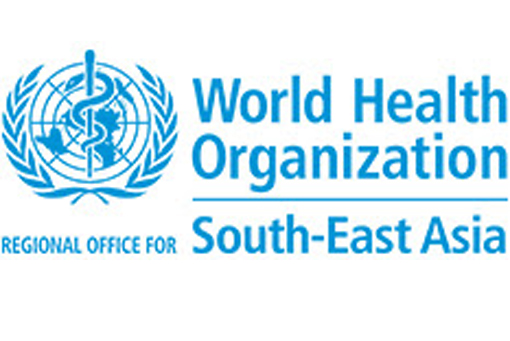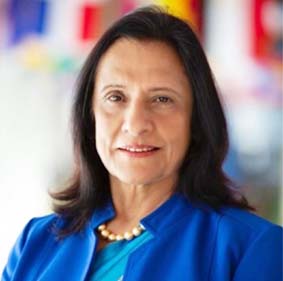- आकाश एजुकेशनल सर्विसेज लिमिटेड ने एस्पायरिंग इंजीनियर्स के लिए पेश किया “आकाश इनविक्टस”– अल्टीमेट JEE प्रिपरेशन प्रोग्राम
- Beyond Key Celebrated Women’s Day 2025 Across All its Offices
- Prasar Bharati and Eros Universe’s Eros Now Announce Strategic Collaboration to Enhance Digital Content Delivery
- Three Stars, a Cricket Match, and One Life-Changing Story: ‘TEST’ Premieres April 4
- Netflix Becomes the Exclusive Home for WWE in India Starting April 1
The WHO South-East Asia Region is committed to strengthening health care services to prevent, treat and manage stroke

World Stroke Day
By Dr Poonam Khetrapal Singh, WHO Regional Director for South-East Asia

The WHO South-East Asia Region is committed to strengthening health care services to prevent, treat and manage stroke, and to provide quality rehabilitative care for stroke-related disability. Globally, stroke is the second leading cause of death and the third leading cause of disability. One in four people are in danger of stroke in their lifetime. Lifestyle risk factors for stroke include being overweight or obese, physical inactivity, tobacco use and alcohol abuse. Medical risk factors include high blood pressure, high cholesterol, diabetes and a personal or family history of stroke or heart attack. An estimated 70% of strokes occur in low- and middle-income countries, which also account for 87% of stroke-related deaths and disability-adjusted life years. To help address this inequity, WHO continues to support all countries of the Region to identify and apply “best buy” interventions that reduce the risk of stroke, and which strengthen access for all to quality stroke services.
The Region has in recent years achieved significant progress on its Flagship Priorities on preventing and controlling noncommunicable diseases (NCDs) and achieving universal health coverage, both of which are critical to Region-wide efforts to prevent, treat and manage stroke, and to increase access to rehabilitative care. All countries of the Region continue to implement multi-sectoral NCD action plans, while also expanding the provision of NCD services at the primary level, in line with the 2016 Colombo Declaration. Several countries continue to lead globally on tobacco control efforts, with India, Nepal, Maldives Thailand and Timor-Leste among the world’s top 10 countries with the largest graphic warnings on tobacco packaging. Amid the pandemic response, the Region continues to promote healthy lifestyles, including by facilitating physical activity and healthy eating, and by tackling harmful use of alcohol and substance abuse. Increased taxation of unhealthy products will not only change unhealthy behaviours, but could also enhance budgetary allocations on health, including on services to prevent, detect, treat and manage stroke and other NCDs.
By the end of this year, the Region will have completed the second year of its multi-country support for stroke care improvement initiative. The programme aims to support countries to strengthen stroke management and referrals through the development and training of multidisciplinary teams consisting of doctors, nurses and rehabilitation therapists. During the first year of implementation, which started in April 2021, Bhutan, Maldives, Myanmar and Timor-Leste participated in the care improvement programme, which has since been expanded to Nepal and Sri Lanka.
In all countries of the Region, several interventions can be applied to achieve immediate progress in strengthening stroke care services. First, integrating stroke prevention and detection into preventive and promotive health interventions, especially at the primary level. Community intervention, e-health and appropriate medication and lifestyle modification can prevent at least 50% of stroke events. Alongside increased public literacy in the FAST method (Facial drooping, Arm weakness, Speech difficulty and Timely emergency service) they can significantly reduce the incidence and impact of stroke. Second, strengthening existing pathways of care from the primary level up, and through to rehabilitation, ensuring that gaps are identified and addressed using a hub and spoke model. Specific focus is needed to improve fast-track referrals and enhance emergency stroke services. Third, making essential stroke medicines accessible to all. Thrombolytic medicines and other medicines for stroke are now included in WHO’s Essential Medicines List and should be integrated into national lists. Fourth, identifying and implementing high-impact innovations. Virtual capacity building in particular holds great promise, alongside tele-networking within and between countries to improve skills and share knowledge and resources.
Every opportunity must be grasped. Stroke is a leading source of disability and a major contributor to lost disability-adjusted life years, especially in low- and middle-income countries. It is a needless impediment to sustainable social and economic growth. Amid the ongoing COVID-19 response, countries of the Region must leverage every chance possible to improve health and well-being, increase health system efficiency, and promote social and economic empowerment and growth. On World Stroke Day, WHO reiterates its commitment to support countries of the Region to strengthen stroke care services to reduce incidence, enhance detection, improve treatment, and increase access to quality rehabilitative services. A fairer, healthier more sustainable Region is ours to achieve.


